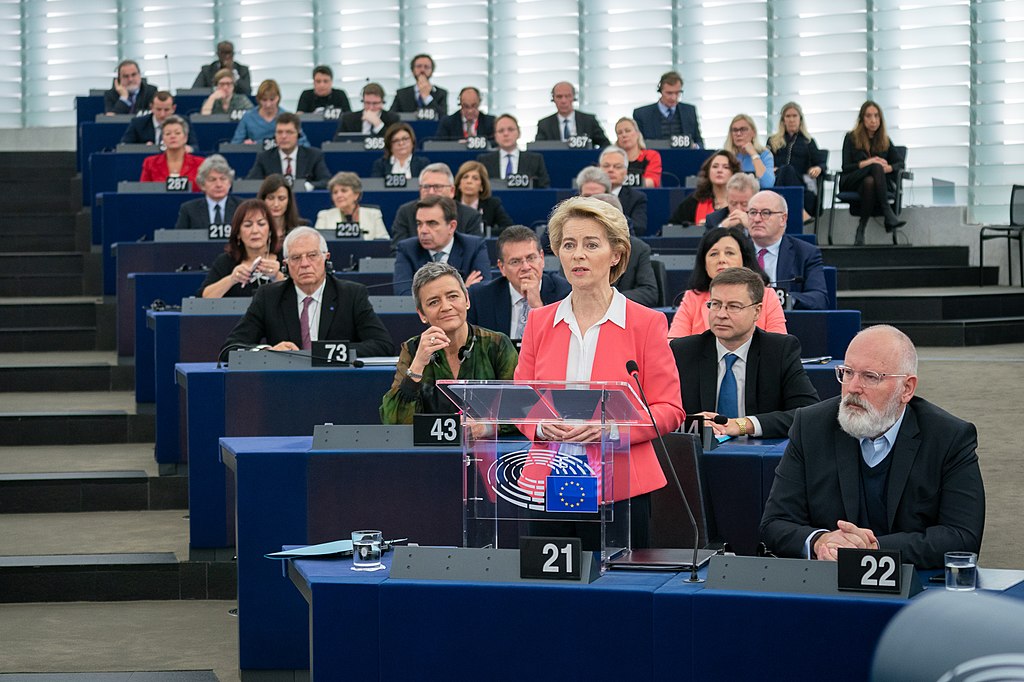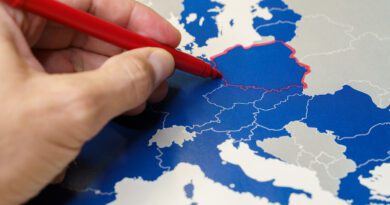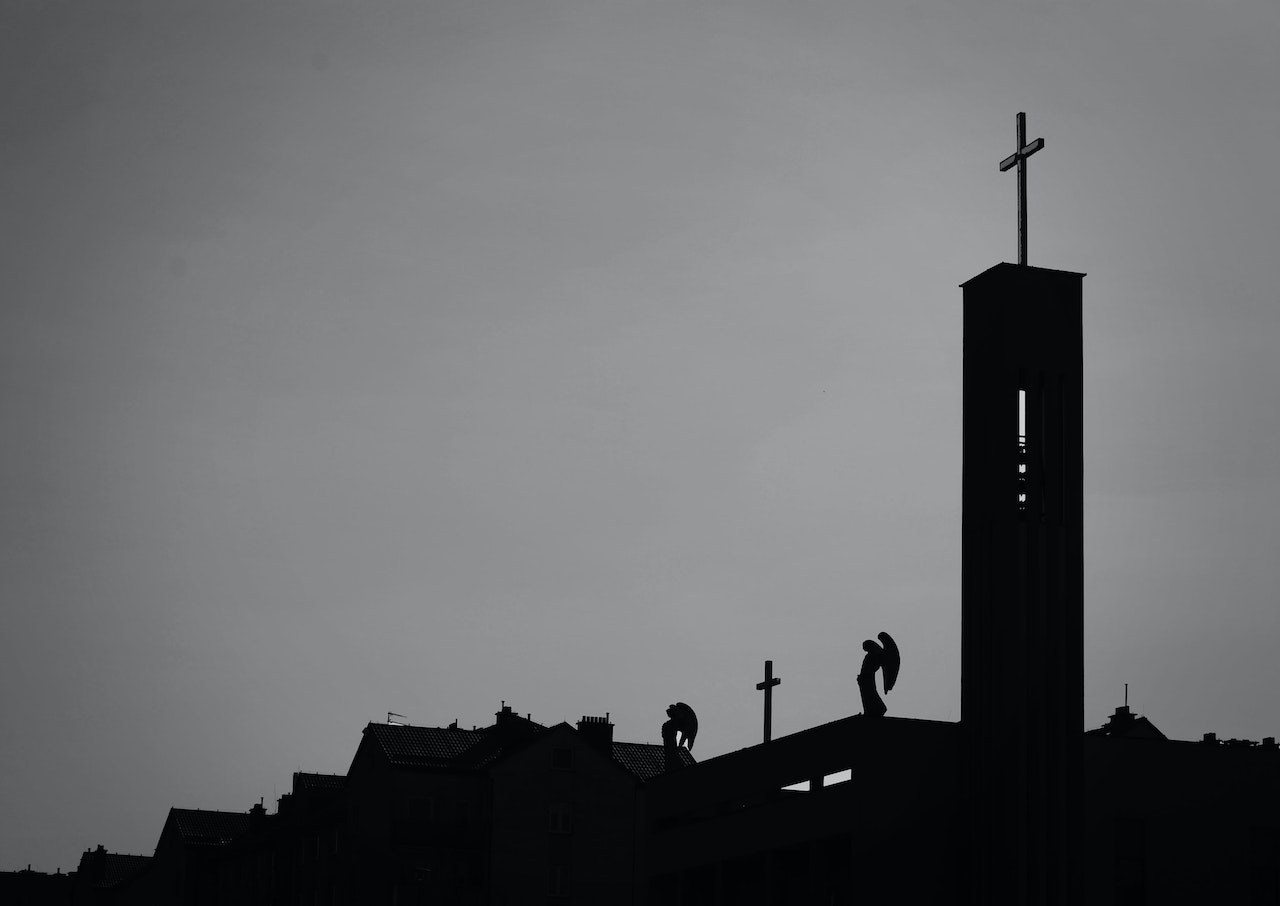A change in the wartime narrative. The right wing in the new claws of history (Part 1)

The sanctions against Poland passed in the EU even during the war may be a sign of a step forward towards the German idea of a federal European state. Conservative values are now considered “Putinism”
Tomasz Rowiński
History tells us that wars tend to leave a much deeper social imprint than direct observers or those involved in them might realize. Wars can demarcate epochs to such an extent that the people entering them seem, in retrospect, quite different from those who come out of them. The experience of two world wars in Europe has completely changed our continent. They acted as a historical meat grinder, toppling not only individual fates, but also entire social and political structures.
The war in Ukraine, though not a worldwide conflict, is certainly a proxy war between Russia as well as China and the West, who tacitly want to take advantage of the situation. Despite the deepening horror of the images of death and destruction, the Russian aggression against Ukraine – at least in its first days – was also associated with a certain kind of enthusiasm. Many politicians, commentators and ordinary citizens saw this war as an opportunity to rebuild the political unity of the West both within NATO and the European Union. It is no secret that the unexpected bravery of the Ukrainians has awakened hope that is difficult to overcome.
The so-called German conversion became an additional fuel for these moods. On February 27th, Chancellor Scholz, after months of obstruction to the political and armed mobilization of the West, whose leaders had long expected a Russian attack, announced the end of the German policy of pacifism and the development of the army to the assembled Bundestag. The embarrassing offer of 5,000 helmets as a “gesture of support” for Kiev has symbolically changed into thousands of anti-tank weapons and tens of thousands of tons of fuel. The commissioning of the Nord Stream 2 gas pipeline has also been suspended, which, given the German declaration of the need to make Europe independent of Russian raw material supplies, creates a real chance for the pipeline to become rusty.
It also seemed for a moment that the emergence of a common enemy would allow us to abandon the disputes that disrupt political cooperation on the Old Continent. Some commentators stated that the times of the new Cold War, favorable for Poland, were about to begin. A “Cold War” would mean the consolidation of the political success, which turned out to be the adoption of the description of the relations between Europe and Russia by our allies, which Poland had been providing them for a long time through its experience. At the height of enthusiasm, it was even possible to think that the European Union would take its foot off the throttle in its frenzied rally towards a progressive utopia and would like to look more closely at the diversity that the countries of the community represent politically and culturally.
Against Poland
It also seemed that the situation of war was the best moment to return to the idea of the bilateral Berlin-Warsaw format, in which both countries, so closely related economically, would develop new rules of cooperation and draw a road map ending the conflict with EU institutions. The following days show that this type of opening in Berlin’s politics is more and more difficult to imagine, and the Polish effort to help Ukraine does not necessarily constitute any capital in European politics. On March 10th, the German daily “Süddeutsche Zeitung” wrote – giving Poland a clear signal – that there would be no “concessions on the rule of law despite the war”.
It was a comment to the vote in the European Parliament taking place the day before on a resolution aimed at blocking funds for Poland on the basis of the conditionality mechanism. In this resolution, apart from the controversial issue of the rule of law, the entire arsenal of the European “proclamation of faith” was brought against Poland, i.e. the so-called European values. We learned that the Polish case is about “counteracting persistent violations of democracy and fundamental rights”, “attacks against freedom of the press and journalists” and attacks “on women’s rights”, “LGBTQ persons”, “freedom of association and assembly”. And – the crème de la crème – countering attacks against “migrants”. Are we not accepting Ukrainians appropriately, according to Brussels, which after all works in a duet with Berlin? Or maybe we shouldn’t defend ourselves against the Belarusian hybrid attack in autumn of 2021? The sharp accusations against Poland in the resolution could be fairly directed towards Putin’s dictatorship. Is that what this is all about?
Russia’s war with Ukraine is sure to leave deep furrows in European politics. There is a danger that Poland will pay the biggest price – right after Ukraine. If the resolution against Poland was passed in the midst of the war and the refugee crisis, in spite of numerous voices calling for the postponement of these matters, it is difficult to see it as a coincidence. Maybe it is the consistent implementation of the so-called starvation of Poland? Maybe this is a step towards the German idea of a federal European empire of values? These “values” are the biggest European problem today. The radical left-wing ideology that has become the “faith” of mainstream EU politics is not merely an addition to the deals that countries make with each other within the EU. Before our eyes, it has become the foundation of all relationships. This is why a revival in the new conditions of the Cold War liberal-Christian alliance (which had many advantages and disadvantages, especially compared to today’s civilization) against Russian imperialism is no longer possible. The ideas are completely different today. They are simply considered wrong.
(…)
This article was published in March 2022 in “Do Rzeczy” weekly.



